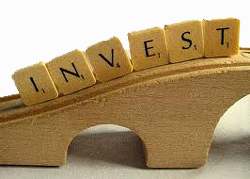ETF is an Exchange Traded Fund which is introduced in the early 1980s. It works like a mutual fund where investments are made into a specific basket of stocks or assets like gold or index funds.
These funds are also traded in stock exchange as a separate unit which can be bought and sold like shares.
When an investor buys a share in Exchange Traded Fund, it means that they have invested in the ETF which will put their money into that specific fund for which it has been created.
Basket of stock means a compilation of shares or stocks from various industries or sectors. For example, you can find “sensex ETF” in India, which means it specifically invested in stocks that are in sensex index.

Similarly a gold ETF means, money collected will be invested in GOLD. As these are invested in specific sector or assets, performance will also depend on the index or specific assets.
The objective of an Exchange Traded Fund or ETF is to yield the same return on investment as its correlating to the sector or fund or asset.
One of the advantages of investing in ETF is that you do not invest on specific shares or securities in share market instead you acquire a share in Exchange Traded Fund which is invested in a diversified portfolio of assets.
Difference between Exchange Traded Fund or ETF and Investing in Index
When investors buy or sell shares of an index, it means the investment is in an individual company where as in case of ETF, you are investing in a portfolio of these companies. But you cannot be selective in stock picking that is to be included or excluded in an ETF.
Here are some of the ETF funds that are traded in Indian Market;
- SBI Sensex Exchange Traded Fund
- Kotak Sensex ETF
- Kotak Gold Exchange Traded Fund
- ICICI Prudential Gold ETF
- Kotak Nifty ETF
There are multiple ETFs in market out of which some are based on Index, sector and commodity. While selecting an ETF for your investment, you need to first understand the kind of funds that will fit to your investment strategy.